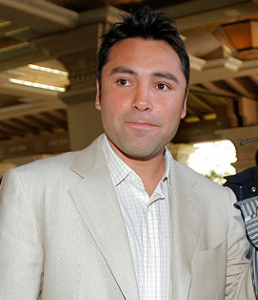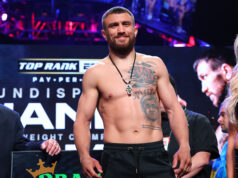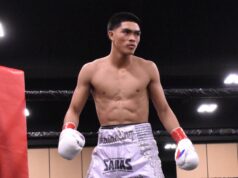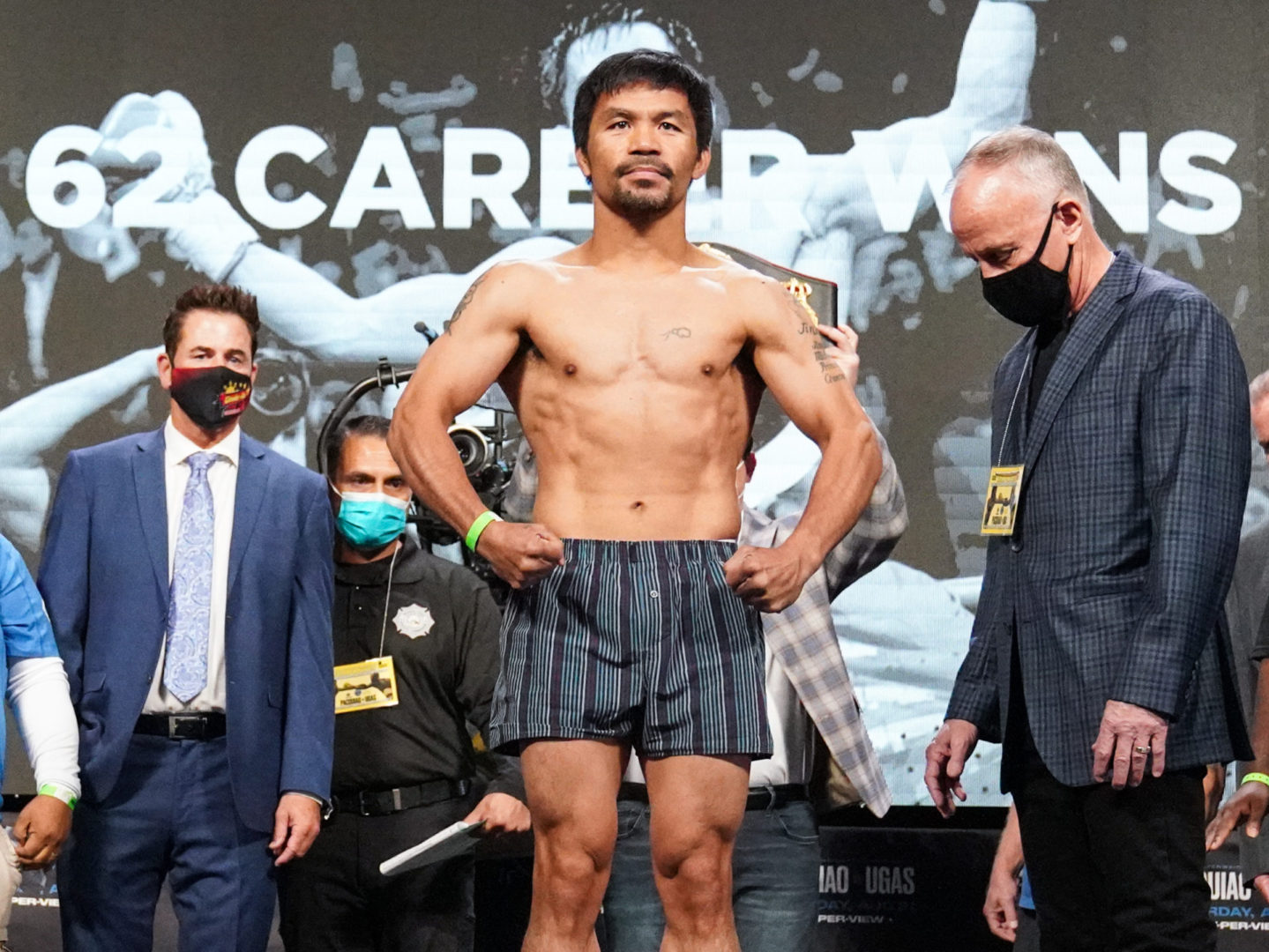 Somewhere in the 11th round of Saturday’s HBO main event one man’s lovely face expressed wholly what viewers wished to see. It was Oscar De La Hoya’s. Once a great fighter, now a promoter of sorts, De La Hoya, sandwiched between the man who runs his company and his evening’s co-promoter, gazed at the ring, and therefore the camera, with a look that said: “Will they forgive us for this?”
Somewhere in the 11th round of Saturday’s HBO main event one man’s lovely face expressed wholly what viewers wished to see. It was Oscar De La Hoya’s. Once a great fighter, now a promoter of sorts, De La Hoya, sandwiched between the man who runs his company and his evening’s co-promoter, gazed at the ring, and therefore the camera, with a look that said: “Will they forgive us for this?”
To De La Hoya’s right his co-promoter, Gary Shaw, a more complete manifestation of the American entrepreneurial spirit – If it makes me money, it is good! – showed no remorse for what happened before him. Shaw’s guy was stumbling, holding and fading his way towards another big payday because somewhere it is written in HBO’s charter the winner of Saturday’s eyesore will be paid again and again according to a compensation scale made of durable pixie dust.
But De La Hoya, for all his recent fruitiness, remains a former fighter and a fan. As his autobiography implies, he is the product of two cultures, and one of those cultures watches a confrontation between two men with expectations greater than an accountant’s. And so the best description of what De La Hoya’s handsome countenance showed Saturday was sheepishness.
There was a feeling of quiet embarrassment to the entire main event that was Chad Dawson decisioning Bernard Hopkins for light heavyweight titles at Boardwalk Hall in Atlantic City, N.J., in a rematch to an October fight considered an embarrassment by both casual fans and aficionados.
Pay-per-view receipts, or at least rumors about them, implied there was no appetite for Dawson-Hopkins II. However unfinished the business from their first meeting, a disqualification that ended in a tangle of limbs, winces and recriminations, Dawson and Hopkins’ business together was clearly and shamefacedly finished. The rematch happened anyway.
Chad Dawson fought as a young man embarrassed that his path to celebrity required him to beat on a 47-year-old. Mauling someone born in 1965 seemed to offend Dawson’s sense of decorum, and so he chose not to. In defiance of everything Joe Calzaghe showed the world four years ago, Dawson waited for perfect opportunities – which even at 70 Hopkins would never afford him – and when they didn’t come, Dawson chose not to risk the embarrassment of swinging at and missing a man so much older. Which led Dawson to suffer a greater fear indeed: What if my conditioning fades, and after doing nothing I actually find myself physically incapable in front of this guy? What will people say about me then?
A question of others’ opinions hung limply over the ring from the opening bell. For all Hopkins’ bluster, he is fantastically preoccupied with others’ opinions of him – a preoccupation sometimes dandied up with words like “legacy.” Dawson lies awake at night with the same preoccupation, though without the same chamomile of achievement to soothe him. Dawson fights like a man very much afraid of humiliation.
How delicious might it have been had referee Eddie Cotton played on these men’s capacities for shame? Any round of the middle eight or so, Cotton might have seen them come together in an embrace and shuffled himself to a neutral corner and stood there, shoulders shrugged. After what duration of clinching and playacting at violence – 90 seconds? 110 seconds? – would either Hopkins or Dawson have become ashamed enough to detach himself and throw a punch? Perhaps the embarrassing job would have devolved entirely to the timekeeper’s bell.
There was a moment in the final minute of round 9, though, a three-second intermission from a 30-minute hug, when each man threw more than a single punch at the other. An exchange ensued. Each man took the other’s punches personally and cared more about avenging them than avoiding the embarrassment of missing or being hit. And within that moment came a reminder for posterity: Were this an actual fight rather than a spectacle, were this a private affair not to be stopped until either Hopkins or Dawson had what honorable men once called “satisfaction,” Hopkins, even at age 47, would have prevailed.
Lowering his chin and head and tearing forward to catch his opponent with an accidental right cross or an intentional headbutt, Hopkins was, during most of Saturday’s 12 rounds, still more interested in confrontation than “Bad” Chad Dawson. Hopkins’ performance was unbefitting a man who calls himself “The Executioner” – hell, it was unbefitting an executive order – but it was often as not a representation of the best Hopkins could do. There was not one round about which the same could be said of Dawson’s effort.
After the judges’ tallies were read, after a first card of 114-114 tantalizingly predicted he might have gotten away with something, Hopkins flashed a perfunctory look of disbelief about his loss. It was not shock but obligation. His theatricality retired, or just tired, Hopkins made a tiny down payment of insincerity on the possibility of grifting HBO one more time. Why couldn’t an “On Graterford” special set the table for a retirement match, complete with another contract extension in the event of a win or honorable loss?
Dawson showed less shame still. He summarized Saturday’s incident thusly: “(Hopkins) came back, he fought his heart out, and it was a great fight.” No, Chad, it was a breathing antonym for “great fight.”
Whatever promoters and publicists next try to do with the spectacle of Dawson-Hopkins II, however much obfuscation gets heaped on this thing, there will happily remain the image of Oscar De La Hoya’s beautiful face to tell Saturday’s story all too eloquently.
Bart Barry can be reached at bart.barrys.email (at) gmail.com.










